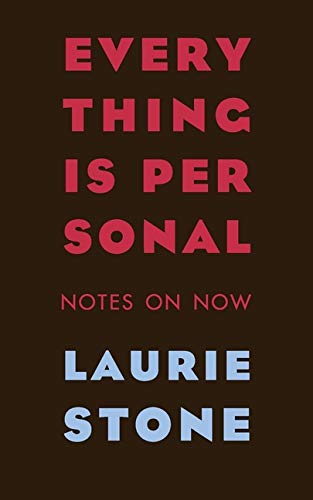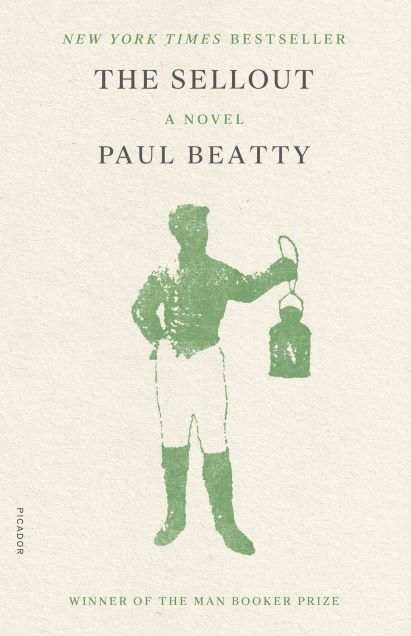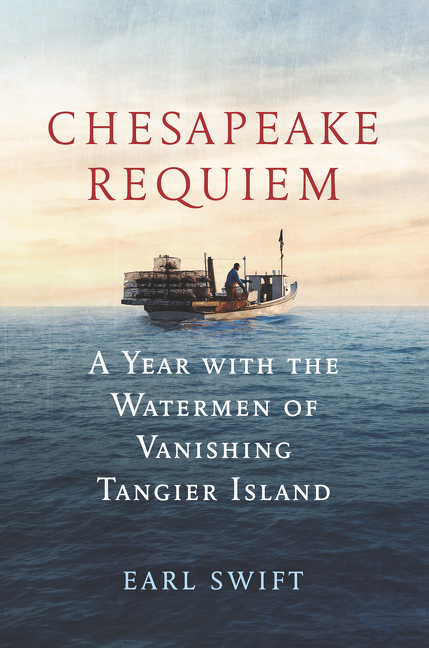I spent the first three weeks of December at a residency, diligently working on my novel, so I didn’t get a whole lot of reading done. Still, these four titles bring my total for the year to 70.
Everything is Personal: Notes on Now by Laurie Stone is a unique book, a collection mini-essays (and some longer ones) that began as Facebook Posts. Stone is an ardent feminist, and I can’t say I agreed with everything she’s saying here, but I love the way she says it. These are strongly held views couched in brilliant language drawing on a wide variety of sources. As a writer for the Village Voice, she observed the cultural landscape of New York for a long time, and so she often had personal interactions with leading artists, writers, and performers, and those relationships also enhance the book.
The Sellout by Paul Beatty is a satire of . . . something. Black apologists? White allies? Gang members? It’s an impressive display of pyrotechnics, but I found it silly at times and offensive (way too much of the N-word) most of the time. To the extent there’s a plot, it is that the main character, a farmer in a small LA neighborhood, seeks to resurrect the town/neighborhood and instill some sense of achievement by re-segregating the school and bus system (well, one bus, anyway). Although his methods work, it attracts the attention of those who are appalled by segregation (wait a sec, is he really trying to say segregation is a good thing?) and he is charged with various civil rights violations (implausible, as he doesn’t actually have the authority to do the things he does, and, besides, what he does is create an illusion of segregation) in a case that finds its way to the Supreme Court. Um, okay. The man can write some awesome sentences, though, I’ll give him that.
Chesapeake Requiem: A Year with the Watermen of Vanishing Tangier Island by Earl Swift was my book club’s selection for December. The book is the author’s very close look at the shrinking community of Tangier Island in the Chesapeake Bay and the crabbing industry that supports it. I found the book fascinating but repetitive. The people of the island seem to live in a different century and, as portrayed by Swift, don’t seem too bright. The problems Tangier faces isn’t about climate change or rising sea levels, they say, it’s about erosion. Um, rising sea levels are a fact and climate change is no longer seriously disputed by people who study these things. They want government to rescue them (since Jesus so far has not come to their aid) even though by a wide margin they supported Trump for President and the party that basically wants to dismantle government. One of the most gripping parts of the book is when a father and son are out crabbing and their boat begins to take on water. The book is a fine piece of long-form journalism, but I have to say it’s hard for me to feel a lot of sympathy.
Dreams of an Imaginary New Yorker Named Rizzoli by Mark Ciabattari is a collection of very short stories that was originally published in 1990 and republished last year. I didn’t realize until I saw a review of it on Goodreads that it was a reprint, but I was interested in the book because I met Mark and his wife Jane years ago at VCCA (Virginia Center for the Creative Arts)—2 or 3 times there, in fact. In any event, I thoroughly enjoyed this book. Rizzoli is an odd character who works a corporate job in Manhattan, and we see him through what are usually called his dreams, but it’s easy to forget that his adventures are dreams, even though they do test the limits of reality. Several characters appear in a number of the stories/dreams, including his landlady, Mrs. Lundy, his friend, Cheswick, and his boss, Mr. Whittaker. The book reminded me somewhat of the story “The Enormous Radio” by John Cheever, which also has a surreal twist to it, and the works of Grace Paley’s husband, Robert Nichols.






Cliff, you may not think you get a lot of reading done. But 70 books in a year when one is writing (and doing a fair number of other things)? IMO, that’s a lot. (Happy New Year!)